The Religion and Customs of Baosheng Emperor
The Religion and Customs of Baosheng Emperor
Baosheng Emperor, also known as Wu Zhenren, was born on March 15, 1979, in Baijiao Village, Tong'an County. Since his childhood father died of illness, he was determined to study medicine, visited famous teachers all over the world, devoted himself to research and become a family of his own. Later in Haicang Qingjiaoqi Mountain, Longxue pit side of Lulu, drilling wells and springs, extracting medicines and alchemy, practicing medicine to save the world. It is famous in southern Fujian for its excellent medical skills and noble medical ethics. Song Jingyou died on the second day of May in the third year (1036). He was 58 years old when he went up to the mountain to collect medicines and fell off a cliff. Folk people in southern Fujian expressed their gratitude and offered sacrifices to Longhuang Temple next year by the side of Longhuang pit. During the Shaoxing period of Southern Song Dynasty, the court approved the establishment of temples (i.e. today's Qing and Baijiao Tzu Chi Palace), and in the second year of Qiandao (1166) Song Xiaozong granted "Tzu Chi". In the third year of Song Tiansheng (1025), the emperor was praised as "the miraculous Taoist real man of imperial history, and in the seventeenth year of Yongle in Ming Dynasty (1419), he was named"the great life-preserving emperor"and was commonly known as"the Dao Gong"among the people.
The belief of Baosheng Emperor has been spreading among the people for nearly a thousand years. There are more than 500 temples in Taiwan alone, and the custom of belief has gradually formed. These beliefs and customs are mainly praying for medicine sticks, inquiry sticks and sacrificial activities such as inviting gods, begging for fire, dividing stoves, entering incense, and traveling around the border. Every year on March 15 of the lunar calendar, the celebration of the great life-preserving emperor, including more than 1,000 temples in southern Fujian, Taiwan, Southeast Asia and Guangdong, gathers at the Tsing Chi Palace, which is grand, grand and exciting, like a carnival.
The beliefs and customs of Baosheng Great Emperor are based on the moral concepts of advising the good and abstaining from evil, helping the weak and treating the sick and saving the people. They play an obvious role in promoting people's health, social stability and harmonious coexistence. Health-preserving Emperor is the health Guardian God of tens of millions of people in southern Fujian and Taiwan. His unique beliefs, customs and healthy, Tzu Chi and harmonious cultural spirit are important components of the culture of southern Fujian and Chinese culture. The medical prescriptions in his medicine label, which have lasted for thousands of years, are rare legacies in the treasure house of traditional Chinese medicine of the motherland.
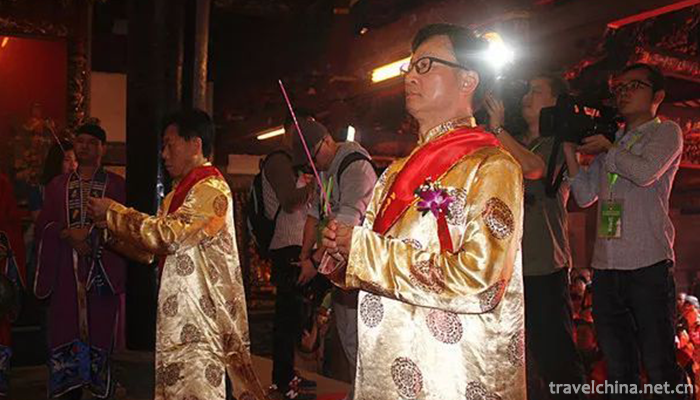
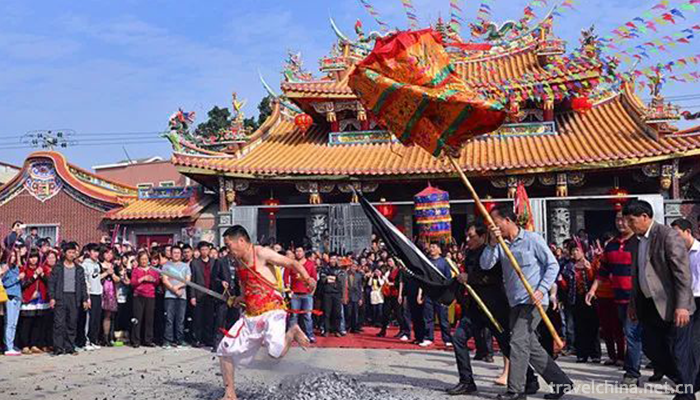
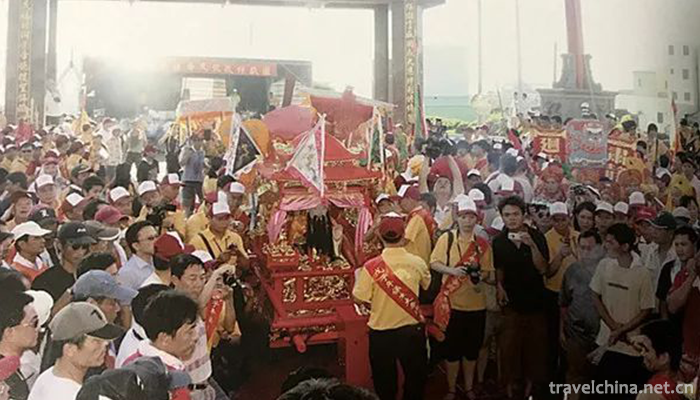
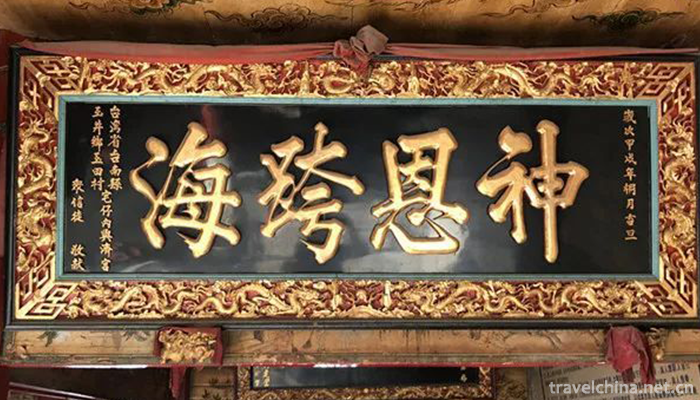
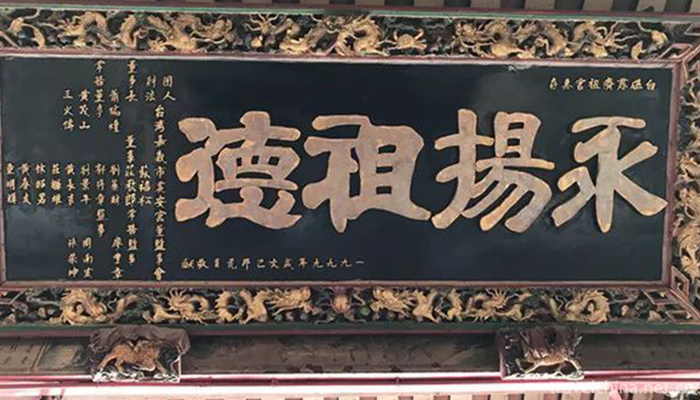
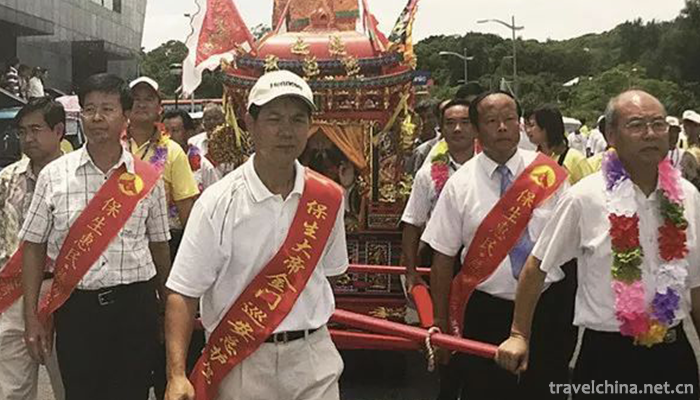
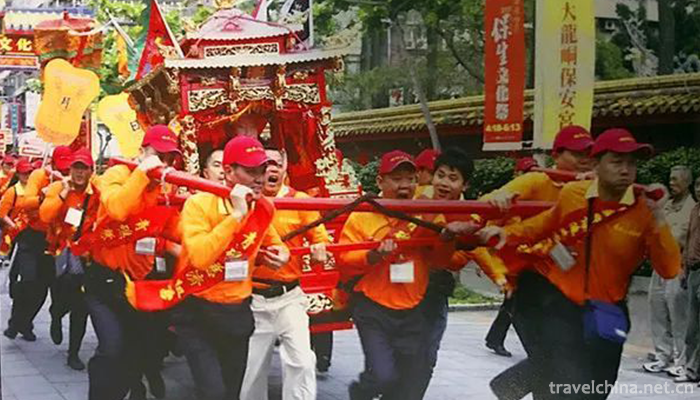
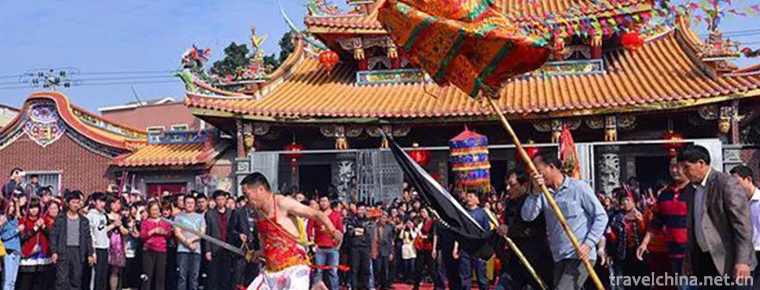
-
1.Alice tomato noodles
The Ali brand was born in 2001 and officially launched in 2005. The brand popularity and honor of Ali Juice Noodle series products are constantly improving
Time 2018-11-26 -
2.Zhongba Grand Canyon Scenic Area
Shiquan Zhongba Grand Canyon is located in the southern side of the Hanjiang River in Shiquan County, Shaanxi Province. It is 20 kilometers away from the county town
Time 2018-12-22 -
3.Qinghai Kekexili National Nature Reserve Hoh Xil
The Kekexili National Nature Reserve in Qinghai Province is located in the western part of Yushu Tibetan Autonomous Prefecture with a total area of 4.5 million hectares
Time 2019-01-29 -
5.Korean Chief Inspiration
Long drum dance, also known as "stick drum dance", is a dance often danced by Chinese Korean people for self-entertainment and entertainment. Long drums have two sides
Time 2019-04-16 -
6.Four Scenic Car Race
Duyuan Sijing Car Race is a folk activity in Pingshun County, Shanxi Province. In May 2011, Pingshun County, Shanxi Province declared the "Four Scenic Car Race
Time 2019-04-28 -
7.Huang Di memorial ceremony
Yellow Emperor's sacrificial ceremony is a kind of sacrificial music and dance to celebrate Xuanyuan Huangdi's pioneering achievements in Chinese civilization. The theme of
Time 2019-05-04 -
8.Lichuan lantern song
Lichuan Lantern Song is a traditional folk dance that originated in Baiyang area of Lichuan City. Many folk songs in Lichuan Lantern Song and the ancient bamboo branch song inherit in one continuous l
Time 2019-05-13 -
9.Miao Batik Dyeing Techniques
Batik dyeing is one of the ancient folk traditional printing and dyeing techniques of the Chinese nation. As early as the Qin and Han Dynasties, the Miao people had mastered batik dyeing techniques, a
Time 2019-06-05 -
10.Qiang embroidery
Qiang embroidery evolved and developed on the basis of inheriting the ancient Qiang people's embroidery. Mainly distributed in Wenchuan County, two towns and four townships (Mianfu Town, Weizhou
Time 2019-06-10 -
11.The social background of Cheongsam
Many scholars and media at that time believed that it was an important reason that women imitated men to wear long gowns in order to seek independence of mind and emancipation of women's rights in the early Republic of China.
Time 2020-12-11 -
12.Neijiang climate
Neijiang City belongs to subtropical humid monsoon climate. Affected by the basin and the natural environment, it has the characteristics of mild climate, abundant rainfall, sufficient light and heat, and long frost free period. It is warm in winter and hot in summer,
Time 2020-12-16